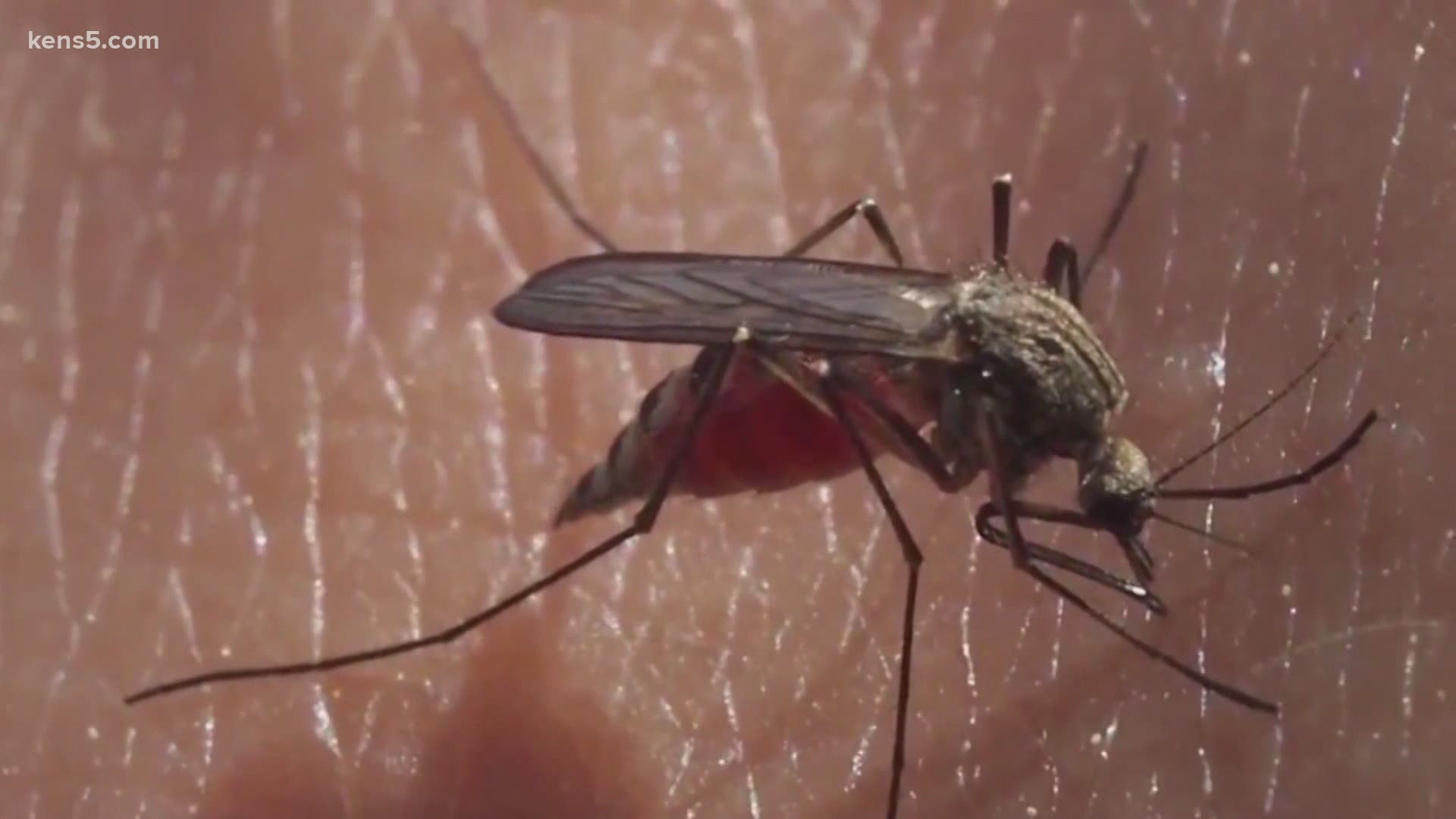SAN ANTONIO — Metro Health is asking for the community's help to prevent mosquitoes in the area after a mosquito sample pool collected in October tested positive for the West Nile virus.
This is the second sample pool that has tested positive in the last six months, according to Metro Health. This sample pool was taken from an area southwest of the downtown area.
The first sample to test positive was collected on July 15 and the location was east of the downtown area. At that time, Metro Health assessed and treated the areas when notified by Texas DSHS.
"Traditionally mosquito season runs March 1 through October but here in south Texas the mosquitos never go away," Metro Health Senior Sanitarian Joel Lara said.
Lara stated Metro Health's Vector Control received a grant from the state of Texas this year that allowed them to do mosquito surveillance. Vector Control officials were able to trap mosquitos in certain areas and send them off to the state to get tested.
That's how they learned about the latest positive pool and they hope it can be used as a preemptive warning for all.
"This is a community effort," Lara said. "Together we’ll work towards controlling mosquitos."
According to the Centers for Disease Control and Prevention, the West Nile virus is the leading cause of mosquito-borne disease in the U.S. It is most commonly spread to people by the bite of an infected mosquito.*
*It is important to note that the World Health Organization has said that mosquitoes cannot transmit coronavirus.
While the CDC says 80 percent of people who do get West Nile don't develop any symptoms, the ones that do might get mislabeled.
It was a concern a Williamson County Vector Control rep shared with our Austin sister station, KVUE, a few months back.
"Roughly 20% get what is called West Nile Fever," Joshua Fritz, the Williamson County Vector Control lead said.
"Which is flu like symptoms, a mild fever, maybe some joint pain, occasionally a skin rash. Fever and body aches can also be similar to COVID symptoms."
Metro Health tells KENS 5 so far no one has tested positive for the West Nile virus in San Antonio.
Metro Health is asking for the public's assistance in preventing mosquitoes in the area, including by removing standing water.
Remove Standing Water
Keep mosquitoes from laying eggs inside and outside of your home. Once a week, empty and scrub, turn over, cover, or throw out containers that hold water, such as
- Vases
- Pet water bowls
- Flowerpot saucers
- Discarded tires
- Buckets
- Pool covers
- Birdbaths
- Trash cans
- Rain barrels
Additionally, there are several ways you can protect yourself from mosquitoes:
Protect Yourself
- Wear long-sleeved shirts, long pants and socks to protect exposed skin during dusk and dawn, which is when mosquitoes are active.
- Avoid use of perfumes and colognes when working outdoors.
- Use air conditioning or make sure there are screens on all doors and windows to keep mosquitoes from entering the home.
- Use an insect repellent containing DEET or Picaridin on skin not covered by clothing.
- Choose a repellent that provides protection for the amount of time that you will be exposed. The more DEET or Picaridin a repellent contains, the longer time it can protect you.
- Spray insect repellent on the outside of your clothing (mosquitoes can bite through thin clothing).
- Do not spray insect repellent on skin that is under clothing.
- Insect repellents should not be used on young infants.
- Do not spray aerosol or pump products in enclosed areas or directly on your face. Do not allow insect repellent to contact your eyes or mouth. Do not use repellents on cuts, wounds or irritated skin.
- If working outdoors, use soap and water to wash skin and clothing that has been treated with insect repellent.

